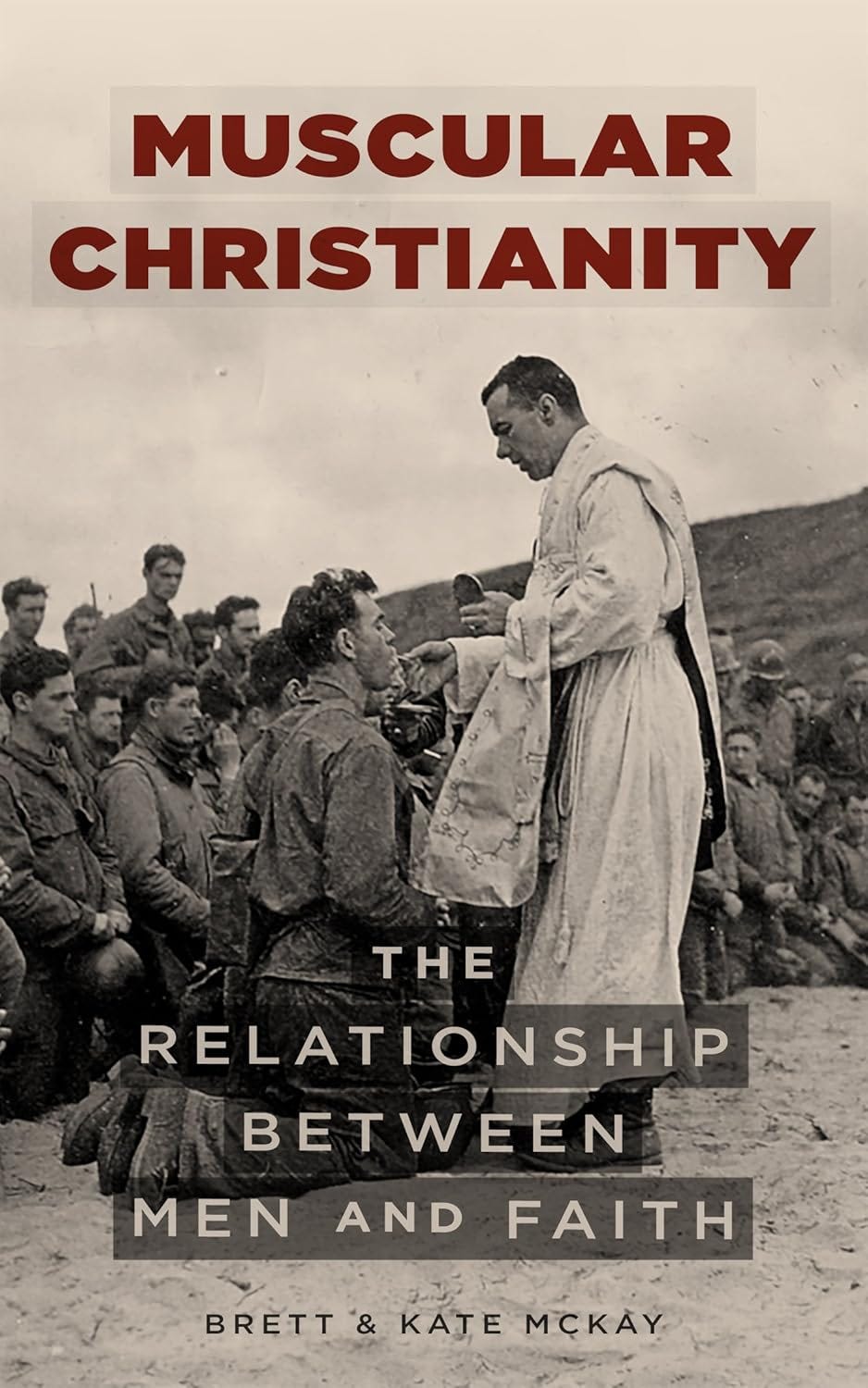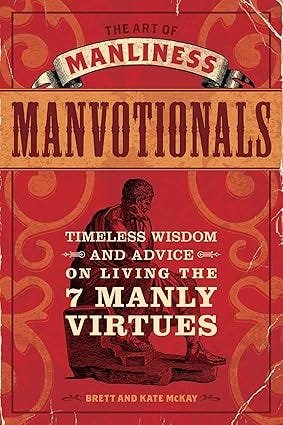Revisiting the Concept of "Muscular Christianity"
The movement's influence can still be seen in Canadian sports and youth organizations, as well as in discussions about values-based approaches to sports and recreation.
“Muscular Christianity” is a philosophical movement that originated in England in the mid-19th century. It was characterized by a belief in patriotic duty, discipline, self-sacrifice, traditional concepts of masculinity, and the moral and physical beauty of “practical” athleticism.
It emphasized the importance of physical strength and fitness alongside spiritual and moral development.
It promoted an ideal of Christian manliness that combined physical prowess with Christian values, often advocating for participation in sports and outdoor activities as a means of building character and promoting faith.
It’s a concept worth revisiting in our current age.

The Victorian era was marked by rapid industrialization, urbanization, and the rise of the middle class. These changes brought new concerns about gender roles, national identity, and the perceived decline of “traditional masculine virtues.”
Many British men and church leaders grew concerned that Christianity had become associated with meekness, passivity, and bodily denial—traits they saw as incompatible with the demands of modern life and the responsibilities of empire.
Several parallels exist between the historical context that gave rise to Muscular Christianity and contemporary society:
Concerns about Masculinity: As noted in the February 25th, 2025 The Conversation post, “How ‘muscular Christianity’ strove to bring men back to religion – and what it can teach us today,” both era’s contained widespread debate about the role of men in society and the church, with anxieties about declining male engagement in religious and civic life,.
Changing Gender Roles: As noted in the Encyclopedia Britannica listing for “Muscular Christianity,” the Victorian era saw women entering public and professional spheres; today, ongoing shifts in gender norms prompt questions about male identity and purpose.
Physical and Mental Health: Both periods witnessed worries about the effects of sedentary lifestyles and urbanization on physical and moral well-being. The current emphasis on fitness, wellness, and mental health echoes Victorian concerns about bodily vigor and discipline.
National and Cultural Identity: Just as Muscular Christianity was tied to British imperial ambitions and national pride, contemporary movements often link physical fitness and traditional values to broader questions of national identity and resilience. The September 27th, 2022 Desiring God post, “The Search for Manly Men of God,” noted:
In the mid-nineteenth century, a growing number of Christians looked at the church and noticed a distinct lack of both men and masculinity. Women outnumbered the men in seemingly all quarters, and many of the men who remained seemed feminine, emasculated by an industrialized society and a church that catered to the female sex.
In response, some Protestant leaders began a movement that would come to be called Muscular Christianity. Muscular Christians sought to reach and reclaim men with a focus on practical religion and physical strength.
The movement dwindled in the years after World War I, but its secularized legacy remains today, and the questions it asked still look for answers from churches facing many of the same problems.
Declining Religious Participation: In both eras, declining male participation in churches prompted efforts to make religion more appealing to men through active, practical, and physically engaging forms of faith.
In essence, Muscular Christianity arose from a complex interplay of religious, social, and cultural anxieties in Victorian England, intended to “restore masculine vigor and moral purpose” through the union of faith and athleticism.
The echoes of these concerns in today’s debates about masculinity, health, and religious engagement suggest why the movement’s ideals may be experiencing a resurgence.

The original Victorian movement’s primary architects, Anglican minister Charles Kingsley and English lawyer and author Thomas Hughes, sought to reinvigorate Anglicanism by blending Christian faith with ideals of health, manliness, and patriotic duty.
Kingsley’s novels, such as Two Years Ago (1857), celebrated British nationalism, physical vigor, and chivalry, often portraying robust Christian heroes as models for the nation.
Hughes’s Tom Brown’s School Days (1857), inspired by his experiences at Rugby School under headmaster Thomas Arnold, emphasized the importance of training boys in both body and spirit. Hughes argued that strong, disciplined bodies were essential for protecting the weak, advancing righteous causes, and fulfilling one’s duty to God and country.
Muscular Christianity was a reaction to the growing presence of women in public life and the shift toward more sedentary, urban occupations, which, as noted in the undated Cove post, “Muscular Christianity & "Tom Brown's School Days,“ were considered to be eroding traditional male authority and vitality.
The movement promoted sports and physical education as tools for instilling discipline, teamwork, and moral character in young men. Public schools, the YMCA (founded in 1844), and other institutions became key vehicles for spreading these ideals.
By the late 19th century, Muscular Christianity had crossed the Atlantic, influencing American religious and sporting culture. Figures like Christian evangelist Dwight L. Moody and US President Theodore Roosevelt championed the cause, linking physical fitness to spiritual and civic virtue.
In some contexts, particularly in Canada, Muscular Christianity was linked to the Social Gospel, a movement that sought to apply Christian principles to address social problems like poverty and inequality.
The movement’s ethos shaped organizations such as the YMCA, the Boy Scouts, and even the revival of the Olympic Games in 1896.
Muscular Christianity offers men a way to integrate physical fitness and spiritual growth, aiming to revitalize faith and strengthen masculinity.
It also provides a framework for men to develop physical strength and endurance, viewing it as a way to honor God and serve others. This approach also offered a sense of community and purpose through sports and other physical activities, often within the context of the church or related organizations like the YMCA.
It’s something our modern age should revisit.
Freedom Forum hopes this post is helpful and informative.
If you agree, please support Freedom Forum’s sponsors by clicking on the images below.





